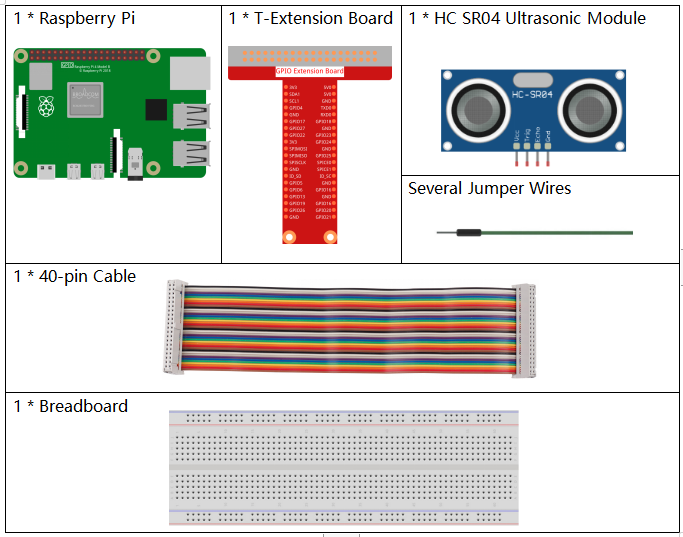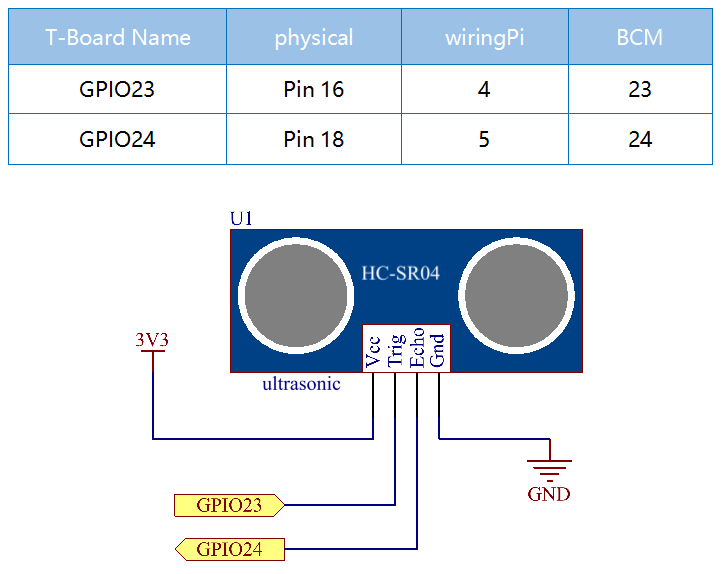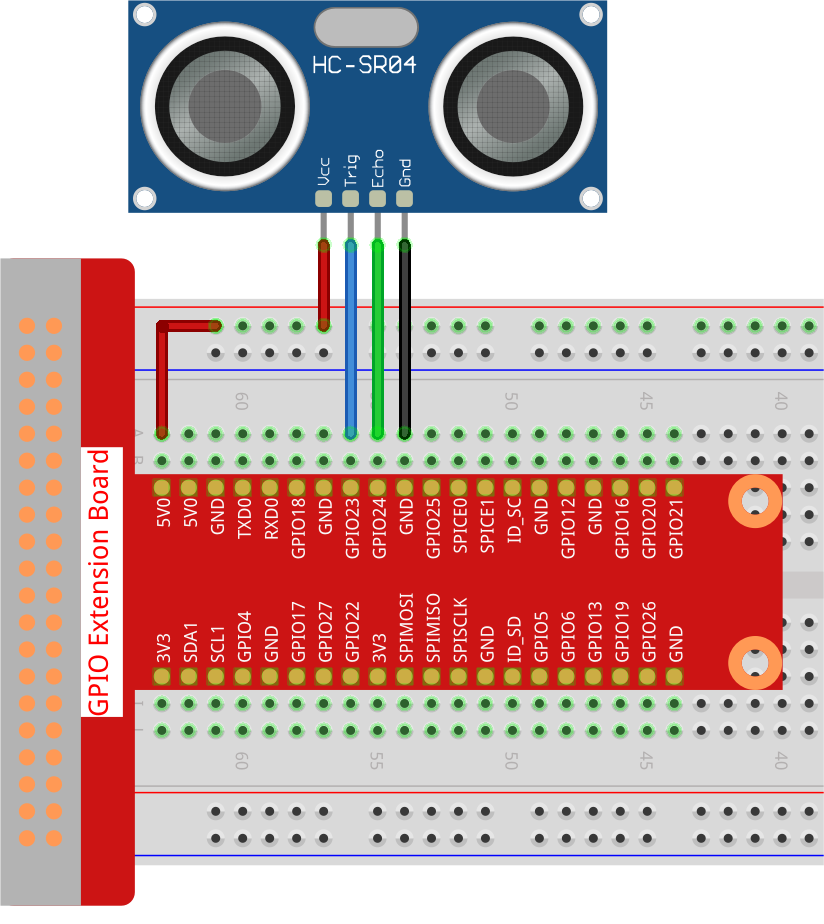2.2.4 Ultrasonic Sensor Module¶
Introduction¶
The ultrasonic sensor uses ultrasonic to accurately detect objects and measure distances. It sends out ultrasonic waves and converts them into electronic signals.
Required Components¶
In this project, we need the following components.

Schematic Diagram¶

Experimental Procedures¶
Step 1: Build the circuit.

Step 2: Go to the folder of the code.
cd ~/davinci-kit-for-raspberry-pi/python-pi5
Step 3: Run the executable file.
sudo python3 2.2.5_Ultrasonic_zero.py
With the code run, the ultrasonic sensor module detects the distance between the obstacle ahead and the module itself, then the distance value will be printed on the screen.
Code
Note
You can Modify/Reset/Copy/Run/Stop the code below. But before that, you need to go to source code path like davinci-kit-for-raspberry-pi/python-pi5. After modifying the code, you can run it directly to see the effect.
#!/usr/bin/env python3
from gpiozero import DistanceSensor
from time import sleep
# Initialize the DistanceSensor using GPIO Zero library
# Trigger pin is connected to GPIO 23, Echo pin to GPIO 24
sensor = DistanceSensor(echo=24, trigger=23)
try:
# Main loop to continuously measure and report distance
while True:
dis = sensor.distance * 100 # Measure distance and convert from meters to centimeters
print('Distance: {:.2f} cm'.format(dis)) # Print the distance with two decimal precision
sleep(0.3) # Wait for 0.3 seconds before the next measurement
except KeyboardInterrupt:
# Handle KeyboardInterrupt (Ctrl+C) to gracefully exit the loop
pass
Code Explanation
Imports the
DistanceSensorclass from thegpiozerolibrary for distance measurement, and thesleepfunction from thetimemodule for delays.#!/usr/bin/env python3 from gpiozero import DistanceSensor from time import sleep
Initializes the ultrasonic distance sensor with the Echo pin connected to GPIO 24 and the Trigger pin to GPIO 23.
# Initialize the DistanceSensor using GPIO Zero library # Trigger pin is connected to GPIO 23, Echo pin to GPIO 24 sensor = DistanceSensor(echo=24, trigger=23)
The main loop continuously measures the distance, converts it from meters to centimeters, and prints it with two decimal precision. Then wait 0.3 seconds and re-measure the distance. Catches a KeyboardInterrupt (like Ctrl+C) to allow for a graceful exit from the script.
try: # Main loop to continuously measure and report distance while True: dis = sensor.distance * 100 # Measure distance and convert from meters to centimeters print('Distance: {:.2f} cm'.format(dis)) # Print the distance with two decimal precision sleep(0.3) # Wait for 0.3 seconds before the next measurement except KeyboardInterrupt: # Handle KeyboardInterrupt (Ctrl+C) to gracefully exit the loop pass